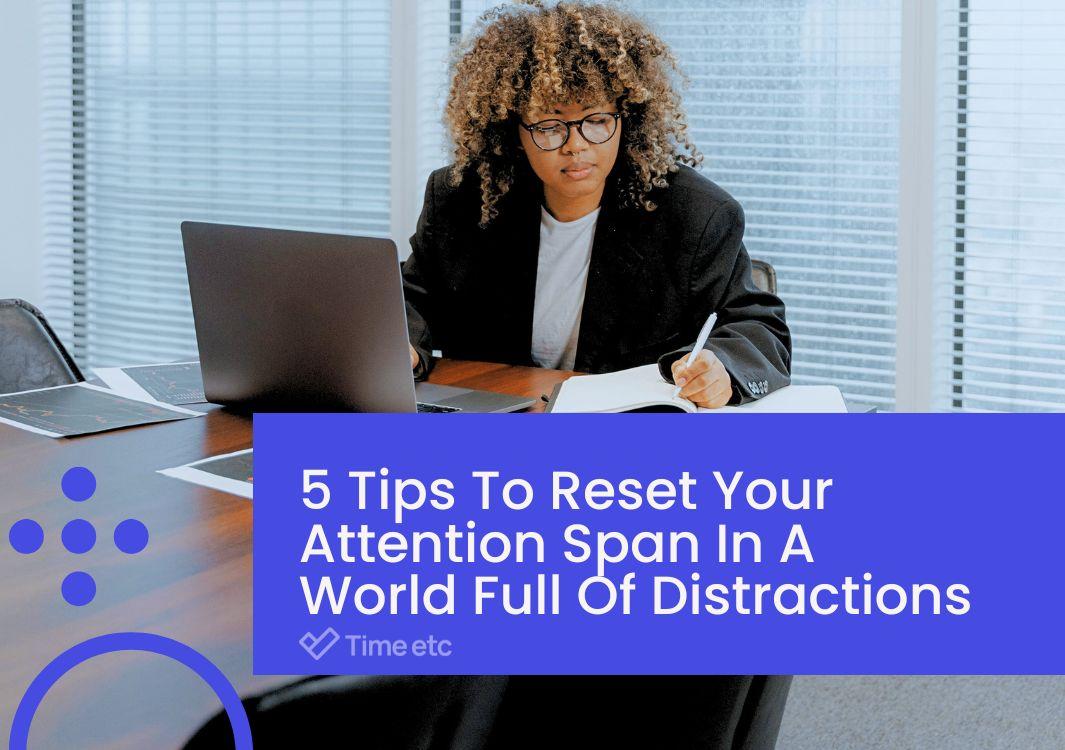Do you ever look at the clock and find yourself still at work way past when you planned to finish?
Have you ever felt the frustration of when a previously straightforward task ends up dragging on for hours when it should take you minutes?
According to recent data, the average business owner spends around 18% more time at work than they believe they should, clocking up around 15 additional hours per week compared to the national average.
If you're getting caught in a vicious cycle of working longer hours day after day just to keep up, the issue may not be a lack of time, but a lack of energy.
It’s a factor of life that is often overlooked, but the reality is that your energy levels are what determine how productive you are in your business.
Here, we'll be delving into how to manage your energy to supercharge your productivity and simply feel better at the end of each day.
What is energy management and why does it matter for business owners?
It's no secret that time and energy are the most valuable resources for any business owner. A great deal of emphasis has been placed on time management as a way to increase productivity and efficiency in the workplace, and not without good reason. However, it can be easy to forget that if you're constantly running on empty, you're never going to be able to accomplish very much—no matter how much time you have at your disposal.
Energy is the fuel that carries us through each minute and hour, so the amount of time it takes for us to complete tasks can be greatly impacted by our energy levels. When you're feeling energized, you're able to concentrate and finish tasks quickly with minimal errors. On the other hand, it's much harder to stay focused and work efficiently when you're feeling drained. Making sure you've always got the energy required for each task means you can produce more high-quality work in less time.
So with that in mind, energy management is the intentional practice of understanding and optimizing your personal energy levels to boost productivity and avoid burnout.
How to manage your energy levels to get more done
Unlike the constant, unchanging nature of time, energy is a finite resource that fluctuates throughout the day. The ability to manage energy effectively makes a world of difference when it comes to being productive, efficient, and ultimately, successful.
You'll never be able to add more hours to your day to get more done, but you can make sure you don't waste the hours you have.
Here are a few simple things you can try to help you stay in peak performance:

Track your energy
An important first step in any resource management process is to conduct an audit, so start by keeping track of your peaks and valleys throughout the day. Take note of what depletes your energy and what energizes you mentally, physically, and emotionally.
This may include:
- Hours of sleep the previous night
- Food and drink consumed
- Types of tasks worked on
- Breaks (how long for, and how you spent them)
- People you spent time with
- Amount of exercise or physical activity.
With this knowledge, you’ll become more aware of what you can realistically accomplish depending on what your day looks like.
For example, if you see that your day has more energy-drains than energy-boosts, then you'll know that you need to make some adjustments if you don't want to be completely frazzled by the afternoon. Alternatively, if you see that you have a lot of energy-boosting activities in your day, then you'll know that you can push yourself a bit harder.
Match your tasks to your energy levels
Another key benefit of charting your day is that you gain insights into your unique energy pattern, allowing you to plan accordingly.
You might have an initial burst of energy in the morning, but start to wane after lunch. If you spent these prime hours crossing off the quick and easy tasks on your to-do list, you'll be at a serious disadvantage when it comes to tackling your more impactful tasks later on.
This is why it's crucial to align your most challenging or consequential tasks with your peak energy periods so you can harness the full strength of your skills.
Jeff Bezos, the founding force behind Amazon, has mastered the art of planning his schedule around his energy, not just his available time. As a successful entrepreneur, Bezos knows that it's not merely about clocking hours; it's about when those hours are clocked.
His mornings are unhurried, spent "puttering"—drinking coffee, reading the newspaper, even making breakfast for his family. When his day officially starts at 10 am, he is refreshed, his mental faculties at their peak. This is when he tackles the "high-IQ" meetings—complex decision-making, strategic discussions, and problem-solving. He intuitively knows that decision fatigue can set in as the day progresses, making it harder to make high-stakes calls.
Bezos's strategy might not work verbatim for you, but the essence remains the same: Take advantage of your natural energy peaks and valleys so that they work with you, rather than against you. Plan your most challenging tasks for your peak energy times and be ready to see what difference it makes.
Set daily minimums and maximums
Once you've identified your energy drains, you can take steps to mitigate their impact.
Setting upper and lower boundaries on tasks and activities not only helps you protect your energy limits but your productivity, too.
Let's say you've established that meetings are one of the culprits that cause your mental energy to dip. Going forward, you might decide that your maximum limit is four meetings on any given day, but attending fewer than one meeting could have a knock-on effect on project progress.
Sticking to these daily minimums and maximums allows you to maintain a manageable pace without losing the momentum toward achieving your goals.

Make time for rest and recovery
Just as elite athletes need to rest and recover between races, you must also take time to recharge between your entrepreneurial sprints. We're far less likely to make time for a break when we're feeling stressed or under pressure, but this is exactly when we need it the most. Operating in a constant state of hustle might feel productive, but it can lead to exhaustion and burnout.
Whether it's a short break between draining tasks, a fresh air walk during lunch, or quiet time set aside at the end of the day, always plan periods of rest and recovery time into your daily routine. Treat these just like you would any important appointment. Even when there are still tasks that need to get done, don't give in to the urge to keep working through your break.
Even the most driven entrepreneurs, like Warren Buffet, understand the vital role that regular breaks play in success. The importance of downtime was neatly captured during a conversation between billionaires Bill Gates and Warren Buffet in 2017, hosted by Charlie Rose. When Rose was given a chance to look inside Buffett’s diary calendar, he was shocked to find it mostly blank.
Creating these pockets of 'doing nothing' might initially seem counterproductive, especially when your to-do list is overflowing. But think about it—what good is it to run yourself ragged only to reach a state of burnout? By intentionally making time for rest and recovery, you allow your body and mind to replenish their reserves of energy throughout the day so you'll always be at your best.
See: The 7 Types of Rest: How to Beat Burnout and Be Happier
Quit multitasking
Multitasking is a seductive trap, making you feel like you're getting so much done by juggling a dozen tasks simultaneously. But let's bust that myth right here, right now. Multitasking is your energy's arch-nemesis.
When you hop from task to task, your mind isn't focusing on multiple things simultaneously. It's rapidly switching between tasks, and each switch comes with a cost. Every time you switch tasks, your brain must refocus, which zaps your energy and reduces efficiency.
Instead, try embracing the art of monotasking. Dedicate your full attention to one task at a time, immersing yourself completely. It's amazing how much more you can achieve when you're fully present and engaged in one thing rather than spreading your energy thinly across multiple tasks.
See: 5 Essential Reasons To Stop Multitasking And Start Monotasking Today
Offload energy-zapping tasks to a virtual assistant
Once you've grasped what fires you up and what fizzes you out, you're in a prime position to craft your day for maximum energy efficiency. Part of this savvy planning involves recognizing when to pass the baton, particularly to a virtual assistant (VA).
A virtual assistant is an independent professional who supports business owners and high-level executives from remote locations, taking all the repetitive, energy-zapping tasks off their hands. They are an ideal solution for handling the tasks that neither energize nor inspire you but still need to get done.
Whether we like it or not, there is no shortage of repetitive, recurring tasks that gnaw at our time and energy, like managing emails, scheduling appointments, handling social media, or daily administrative tasks. They're necessary, but they're probably not what inspired you to start your entrepreneurial journey. And every minute you spend on them is a minute you're not focusing on your core business, the parts you're passionate about, and that only you can do.
Not only that, but one of the most significant benefits is how much you can save on overhead costs compared to hiring full-time employees. You only pay for their productive time spent completing your tasks, as much or as little as you need, right down to the minute.
And when you consider the costs of recruitment, office space, equipment, supplies, health insurance, or any employee benefits you offer, hiring a virtual assistant can save businesses up to 90% in operating costs. The money you save can then be reinvested into other areas of your business, unlocking more opportunities for development and growth.

What's the bottom line?
Your ability to manage your energy effectively and sustainably is one of the most important habits for any business owner to cultivate. Without it, you'll struggle to maintain the momentum needed to get ahead in the world of business.
Mastering energy management is all about recognizing your unique energy rhythms and molding your workday around them. From setting concrete boundaries around the tasks you work on, to finishing one task at a time, each step in this guide can make a huge difference in tapping into your full potential every day.
And if you're looking to reduce the number of repetitive, draining tasks in your workload, look no further than Time etc.
With over 15 years of experience in helping over 22,000 business owners reclaim valuable time and energy, a vast talent pool of virtual professionals, and a lifetime happiness guarantee for all our users, we're committed to helping you reach your goals.
Speak to our expert team to get started, and we'll handle the rest! We'll match you with a skilled virtual assistant based on your unique needs, so you can start doing more of what matters most.
Or try us out for free today!










